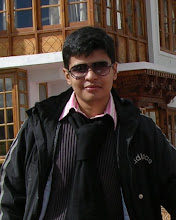The history of Bhavnagar is also suggestive if its rich cultural heritage. In the words of John Houston, “It was the pioneer of civilization and administrative activity in the peninsula and has ever set an example to the neighboring chiefs in the spread of education, in the prosecution of public works, in the development of commerce and in adoption of measures generally conducive to the welfare of its subjects.” The city land has mothered great Gujarati literary geniuses like Narsinh Mehta - whose devotional poetic works like 'Vaishnav Jan To...' are widely acclaimed, Kavi Kant - the Royal poet of the State, Jhaverchand Meghani - one of the greatest writers of Gujarati literature. Photographer of international acclaim like Kishor Parekh and Lawyer of international acclaim Pravin Parekh are other luminaries who have Bhavnagar as their birthplace. I have the privilege of being related to one such charismatic persona - Shri Pravin Parekh, one of India's finest lawyers and a senior counsel in The Supreme Court of India, who happens to be my mother's maternal uncle. He was in Mumbai recently and got nostalgic, candidly recounting his good old times in Bhavnagar with his sister (my grandma), which I could not help but overhear. And what times they were! Mere listening to him made me feel enchanted. The description seemed like lore. He really made me feel the city of Bhavnagar, as it was about half a century back.
The gossip about how they lived as kids - discussing their fixed play timings, strict disciplinarian father, school life, how my grandma (who turned eldest amongst siblings after the eldest sister got married) made sibling's hair and dressed them up for school, etc was sheer fun to listen. It really made me think, how I would, God willing, if i live for another 50 years, think about things as they are today in a nostalgic way! Then came the 'feel' of the city of Bhavnagar...
The city, comprising mainly of Gujarati populace was divided into ethnic groups of common religion, caste, interest, region, et cetera. Such group was called a 'naat'. A 'naat' usually comprised of a group of 2000 people on an average with the larger ones having more than 5000 people members! A 'naat' formed a sort of communion. In those days, there were no restaurants or eat-out joints like today; so families as a whole used to drop in at residence of other fellow 'naat' member without notice, frequently. Guests were as frequent as these days milkman is, in the mornings. And there was no surety who might drop in and when. However, whoever dropped in whenever were welcomed with open arms and treated as a member of the family. There was no uncomfortable feeling sighting a guest at the door. There was always provision made in advance, every single day, for guests as far as food was concerned. More than two hundred 'chapatis' (form of leafy Indian bread) were made.
On days of occasion and some non-occasion days, 'naat' luncheon would be organised. 'Naat Gor', the donor of the luncheon, would be in charge of the luncheon proceedings. He would make the necessary arrangements for the luncheon; send out 'notru' or invitation to families belonging to that particular 'naat'. The invitations were never sent to singular or dual members of a family. Each and every member of family would be invited as there would be non-attendance in case of singular or dual invitations because a member of family would think, "why should he/she enjoy the meal, while others in the families don't". It would be a fun fair like scenario, with 2000-5000 people dropping in and making merry. The 'naat gor' would make note of absentees (mostly comprising of the ill, widows or elderly) and get 'pirasna' or lunch packets sent to their place of residence; such was the care taken to see that nobody misses out. Such was the connection, such were the feelings, such were the emotions and such were the intentions.
Hard to experience such things these days as we, living in a fast lane of corporate India have forgotten the values - the very values of Indian-ness, which made us Indians. It makes my eyes moist when I think, "This no longer happens even in India!" We Indians probably don’t like to be ourselves and do things our way. The West is again ruling India, albeit in a passive way.
Feeling the city of Bhav-nagar
Bhavnagar is a coastal city on the eastern coast of Gujarat founded in the 1700's by Raja Bhavsinhji after whom it is named. It is currently the sixth largest city of Gujarat with a population of about three quarters of a million. However, its claim to fame comes from the fact that it is known as the 'cultural' capital of Saurashtra. The populace of Bhavnagar even today is loves art and are easy to get along with. The demeanor of the people is charming with 'welcome' written right on their faces. Initially, an outsider might find their mannerisms funny but lending it more thought would classify their manners as synonymous with dignity and humility.
Subscribe to:
Post Comments (Atom)


No comments:
Post a Comment